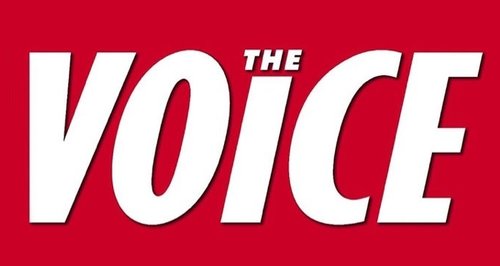MIGRAIN: Media regulation
1) What is regulation and why do media industries need to be regulated?
Systems of regulation are required to provide rules and regulations to ensure that organisations operate fairly. Examples of regulatory bodies include: the Advertising Standards Authority- who regulate the advertising industry, the Independent Press Standards Organisation- who regulate newspapers. Media industries need to be regulated in order to provide a set of tough consequences for media organisations that break the rules, but they do also need to balance the interests of media producers and protect freedom of expression.
2) What is OFCOM responsible for?
OFCOM- the OFfice of COMmunication- are responsible for regulating the Broadcast media (TV and Radio). They are responsible for granting licences to TV and Radio stations and it is illegal to broadcast TV or Radio signals without a licence from OFCOM.
3) Look at the section on the OFCOM broadcasting code. Which do you think are the three most important sections of the broadcasting code and why?
I think the three most important sections of the OFCOM broadcasting code are:
4) Do you agree with OFCOM that Channel 4 was wrong to broadcast 'Wolverine' at 6.55pm on a Sunday evening? Why?
I agree with OFCOM to some extent. Although Channel 4 did show a violent movie before the watershed, they included a warning before hand and they had made a significant amount of cuts to make sure the movie would be suitable for the potential audiences.
5) List five of the sections in the old Press Complaints Commission's Code of Practice.
6) Why was the Press Complaints Commission criticised?
The PCC was criticised due to the fact that they were incapable of doing its job. Newspapers were breaking the rules on a pretty regular basis and very little was done to stop them. Furthermore, if a newspaper was found to have broken the rules, the best a victim can hope for is an apology, which often does not get sufficient prominence in the paper. Voluntary regulation is flexible enough to allow for this kind of intrusion in the public interest.
7) What was the Leveson enquiry and why was it set up?
The Leveson enquiry is an inquiry into the “culture, practice and ethics of the press”. It was set up mainly due to a phone hacking scandal. In January 2007, Clive Goodman (the royal
reporter of the News of the World newspaer) and Glenn Mulcaire (a private investigator, employed by Goodman) were imprisoned for illegally intercepting phone calls connected to the royal family.
8) What was the PCC replaced with in 2014?
On 8th September 2014, the PCC was replaced by the Independent Press Standards Organisation (IPSO).
9) What is your opinion on press regulation? Is a free press an important part of living in a democracy or should newspapers face statutory regulation like TV and radio?
I think that newspapers should only face regulation to a small extent. It is important that the public learn the truth about what is happening in their country, that is part of living in a democracy.
10) Why is the internet so difficult to regulate?
The internet is so difficult to regulate because the internet does not have an official regulating body. The internet makes content available from all over the world so even if regulating laws are passed in the UK (e.g aiming to regulate highly sexual and violent music videos) they will be ineffective against material being hosted in other
parts of the world. As the system is an example of voluntary regulation, it remains to be seen how effective it will be.
Systems of regulation are required to provide rules and regulations to ensure that organisations operate fairly. Examples of regulatory bodies include: the Advertising Standards Authority- who regulate the advertising industry, the Independent Press Standards Organisation- who regulate newspapers. Media industries need to be regulated in order to provide a set of tough consequences for media organisations that break the rules, but they do also need to balance the interests of media producers and protect freedom of expression.
2) What is OFCOM responsible for?
OFCOM- the OFfice of COMmunication- are responsible for regulating the Broadcast media (TV and Radio). They are responsible for granting licences to TV and Radio stations and it is illegal to broadcast TV or Radio signals without a licence from OFCOM.
3) Look at the section on the OFCOM broadcasting code. Which do you think are the three most important sections of the broadcasting code and why?
I think the three most important sections of the OFCOM broadcasting code are:
- Section 1 (protecting the Under-Eighteens) because these are children who can be easily influenced by the media. If what they watch on the media is not regulated, it could have massive negative impacts on them and society (e.g. they become more violent)
- Section 4 (Religion) because people can be deeply offended and effected if their religion is being made fun of in the media
- Section 8 (Privacy) because this is an important aspect of people's lives and it is in their right to have privacy if they want it.
4) Do you agree with OFCOM that Channel 4 was wrong to broadcast 'Wolverine' at 6.55pm on a Sunday evening? Why?
I agree with OFCOM to some extent. Although Channel 4 did show a violent movie before the watershed, they included a warning before hand and they had made a significant amount of cuts to make sure the movie would be suitable for the potential audiences.
5) List five of the sections in the old Press Complaints Commission's Code of Practice.
- Section 4: Harassment
- Section 5: Intrusion Into Grief and Shock
- Section 7: Children in Sex Cases
- Section 12: Discrimination
- Section 16: Payment to Criminals
6) Why was the Press Complaints Commission criticised?
The PCC was criticised due to the fact that they were incapable of doing its job. Newspapers were breaking the rules on a pretty regular basis and very little was done to stop them. Furthermore, if a newspaper was found to have broken the rules, the best a victim can hope for is an apology, which often does not get sufficient prominence in the paper. Voluntary regulation is flexible enough to allow for this kind of intrusion in the public interest.
7) What was the Leveson enquiry and why was it set up?
The Leveson enquiry is an inquiry into the “culture, practice and ethics of the press”. It was set up mainly due to a phone hacking scandal. In January 2007, Clive Goodman (the royal
reporter of the News of the World newspaer) and Glenn Mulcaire (a private investigator, employed by Goodman) were imprisoned for illegally intercepting phone calls connected to the royal family.
8) What was the PCC replaced with in 2014?
On 8th September 2014, the PCC was replaced by the Independent Press Standards Organisation (IPSO).
9) What is your opinion on press regulation? Is a free press an important part of living in a democracy or should newspapers face statutory regulation like TV and radio?
I think that newspapers should only face regulation to a small extent. It is important that the public learn the truth about what is happening in their country, that is part of living in a democracy.
10) Why is the internet so difficult to regulate?
The internet is so difficult to regulate because the internet does not have an official regulating body. The internet makes content available from all over the world so even if regulating laws are passed in the UK (e.g aiming to regulate highly sexual and violent music videos) they will be ineffective against material being hosted in other
parts of the world. As the system is an example of voluntary regulation, it remains to be seen how effective it will be.



Comments
Post a Comment